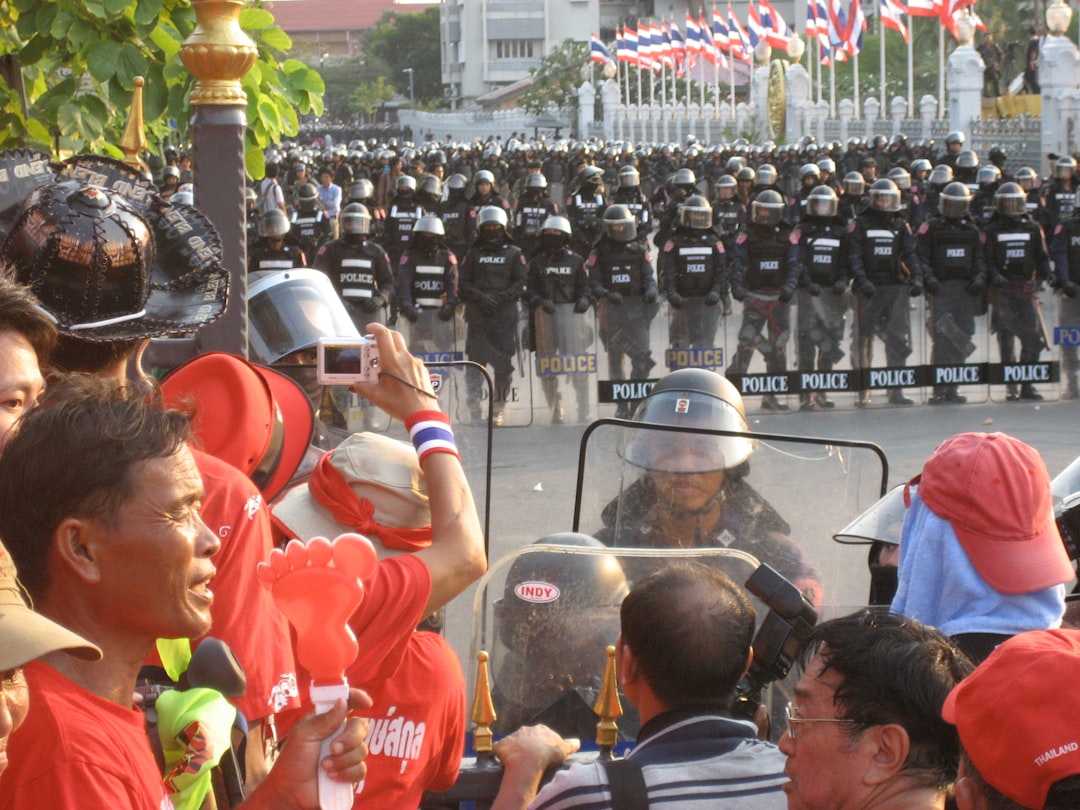Thailand’s Dangerous Illusion of Stability: Why Political Posturing Amidst a Cambodia Crisis is a Democracy Betrayed
Political tremors rarely start as earthquakes—they rumble beneath the surface, masked by smiling leaders and hollow reassurances. The statement, “Thai PM assures ruling coalition is stable as dispute with Cambodia escalates,” should ring alarm bells, not lull the public into complacency. The real danger isn’t in the border conflict itself, but in the way Thailand’s democracy is being manipulated, concealed beneath the veneer of stability, and exploited in the shadow of international disputes.
The Crisis Behind the Curtain: What’s Really at Stake?
Thailand’s Prime Minister—and much of the ruling coalition—are engaged in a defiant show of unity while tensions with neighboring Cambodia rise over newly ignited territorial spats and nationalistic rhetoric. But what’s truly stable about a coalition held together less by shared vision and more by shared fear of losing power?
The Hidden Costs of "Stability"
| Claimed "Stability" (pm side) | Reality on the Ground (opposition/critics) |
|---|---|
| Strong, united ruling government | Fragile alliances and behind-the-scenes infighting |
| Capable of handling foreign crises | Distracted from domestic problems by border drama |
| Boosts international confidence | Risks escalation with Cambodia for political gain |
Nationalism as a Smokescreen
Whenever a government touts national emergencies or external threats, voices questioning the status quo risk marginalization. Nationalistic fervor over the Cambodia dispute provides the ruling coalition the perfect excuse to tamp down internal dissent. History, both Thai and global, warns us that democracy can erode not with gunfire but with applause—for strong leaders who claim only they can defend the nation.
“Patriotism is the last refuge of the scoundrel.”
– Samuel Johnson
Thailand isn’t alone: we see similar tactics from Moscow to Manila, where “external threats” are invoked to silence inconvenient debates or undermine opposition voices.
Ongoing Issues Between Thailand and Cambodia: Never Just About Borders
The Thai-Cambodian relationship has swings ranging from pragmatic trade to volatile conflict. At the heart of many disputes is the ancient Preah Vihear temple—UNESCO heritage, pride for Cambodian identity, and bone of contention for Thai ultra-nationalists.
Historical Timeline:
- 1962: International Court of Justice (ICJ) rules Preah Vihear belongs to Cambodia—Thais, especially right-wing groups, never fully accept.
- 2008-2011: Series of border clashes, both countries stoking nationalist flames.
- Today: Border demarcation and resource control remain flashpoints, manipulatable for political gain.
Who Really Wins (and Loses)?
| Winners | Losers |
|---|---|
| Incumbent politicians | Grassroots democratic activists |
| Military or security agencies | Border communities, everyday citizens |
| Nationalist media outlets | Southeast Asian diplomatic cooperation |
Government posturing rarely brings long-term solutions, but almost always brings short-term censorship and a silencing of critics.
Culture Clash: Democracy vs. Strongman Leadership
The concept of “stability” means radically different things in the Thai context:
| Democratic Ideal | Authoritarian Reality |
|---|---|
| Open debate and opposition | Demonizing dissenters as “unpatriotic” |
| Transparent negotiation | Secret coalitions, backroom deals |
| People’s voices represented | Political survival trumps public interest |
Technology & Propaganda: A Modern Battlefield
Thai social media, especially platforms like Facebook and Twitter (where criticism is rampant but also heavily policed), becomes battlegrounds for both pro- and anti-government voices. Misinformation campaigns, bot armies, and cyber-harassment are tools wielded by both state actors and activists, muddying public perceptions and raising the stakes for anyone who questions official narratives.
The Regional Domino Effect
The dispute doesn’t just destabilize Thailand and Cambodia—it ripples across ASEAN, threatens international investment, and imperils regional peace efforts. As major powers like China and the US watch closely, local disputes threaten to turn Southeast Asia into a new arena for proxy conflicts and “sphere of influence” jockeying.
Conclusion: Democracy at a Crossroads
Thailand’s current government may claim stability. But the true mark of a stable democracy isn’t the absence of visible conflict—it’s the capacity to handle dissent, question authority, and put the people’s interests first, even when the borders tremble.
Until Thailand can allow criticism without demonization, prioritize authentic negotiation over nationalistic posturing, and put democracy above political survival, every promise of “stability” is nothing but a dangerous illusion.
This article was inspired by the headline: 'Thai PM assures ruling coalition is stable as dispute with Cambodia escalates'.

Comments
No comments yet. Be the first to comment!